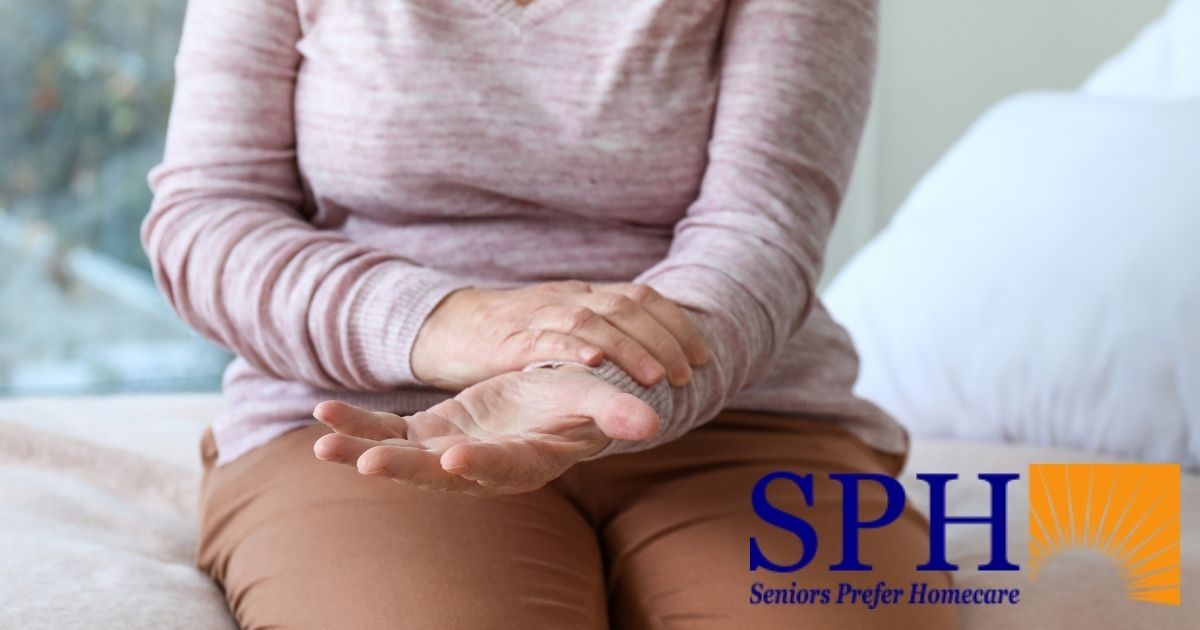Caring for an aging loved one with Parkinson’s disease (PD) can be overwhelming even on the best of days. As PD progresses it can affect cognition, communication and mobility. In the latter stages Parkinson’s can cause complications that make performing even the most basic activities of daily living (ADLs) difficult. As an informal caregiver, finding ways to simplify the caregiving process for seniors with Parkinson’s will help them maintain a higher quality of life. Here are some tips to ensure that all your loved one’s needs get met.
How Parkinson’s Affects Seniors
The onset of Parkinson’s can be subtle and gradual. This is what to expect in the earlier stages:
- Tremors (slight shaking) in the hands, fingers, thumbs or chin
- Voice that keeps getting softer and lower
- Loss of smell
- Sleeping difficulties including restless sleep
- Stooped or hunched over appearance
- Trouble moving body parts or walking
- Constipation that’s unrelated to diet or medications
- “Masked” face that appears angry or serious for no apparent reason
And although Parkinson’s in-and-of itself isn’t fatal, as the disease slowly progresses it can lead to complications later in life that are serious and deadly.
PD Can Disrupt Speech and Communication
Because it’s a neurological disorder, Parkinson’s eventually targets muscles and brain cells that control speech, listening and comprehension. Difficulty concentrating or expressing thoughts is common, along with an inability to form words, find the right words, or retrieve learned information. Once these speech and comprehension issues present themselves, communicating with someone living with PD becomes even more challenging.
Developing an Effective Parkinson’s Strategy
Sadly, there is no known cure for Parkinson’s. However, surgical procedures and medications are available that address symptoms and disease progression. As an informal caregiver, staying in front of the Parkinson’s curve takes an effective strategy that includes these steps:
Learn all you can
April is Parkinson’s Awareness Month, which makes it the perfect time to educate yourself about the disease. Help your loved one enjoy a higher quality of life by learning about the right diet, exercise program and home environment for those living with PD.
In addition to the Parkinson’s Foundation, other educational resources that you can take advantage of include caregiver support groups, healthcare contacts that work with Parkinson’s patients, and informative websites like WebMD or the Mayo Clinic.
Form a caregiving team
Your loved one will probably be referred to a neurologist for care, a physician that is trained to treat patients with neurological disorders. Starting with their primary care doctor and neurologist, form a caregiving team with members whose talents may be useful as your loved one’s condition gets worse. Consider adding these individuals to your roster:
- Geriatric care manager
- Speech, occupational and physical therapists
- Family members, friends and neighbors
- Volunteers
- Professional in-home caregivers
Once you’re team is ready, find ways to communicate with each member as you coordinate care that consistently meets your loved one’s needs.
Anticipate communication challenges
Before speech and communication issues start interfering with the caregiving process, anticipate those challenges by learning new communication skills. Working with a licensed speech therapist will benefit both you and your loved one.
Avoid caregiver burnout
As your loved one’s condition grows worse it’s going to require more effort on your part to maintain quality of life. Avoid caregiver burnout by taking periodic breaks and be sure to pamper yourself with relaxing activities or some alone time.
You also need to eat right, exercise regularly, and get plenty of sleep. Make sure to see your doctor once a year for a complete physical. Find a “respite” caregiver to fill in by asking friends, neighbors or other family members. Another option you have is hiring a professional in-home caregiver from a licensed homecare agency.
Dependable In-Home Respite Care for Seniors in Alabama
Although it’s highly rewarding, caring for an aging loved one with Parkinson’s can also be overwhelming at times. At Seniors Prefer Homecare, our specialty is providing independent seniors with daily living assistance, including those with Parkinson’s disease. As a fully licensed home care provider, our compassionate respite caregivers can deliver essential in-home services like personal care, companionship care, household duties, dementia care, and even live-in and 24-hour care.
At SPH, our highly trained professionals use a unique approach that’s designed to lift the spirits of those we serve while maintaining their dignity, independence and self-esteem. To learn more about Seniors Prefer Homecare now, or to schedule a FREE consultation for a senior in Tuscaloosa or Huntsville, AL, today, please visit us at www.seniorspreferhomecare.com!

